The Libyan authorities announced on Wednesday that they would be suspending the work of ten humanitarian NGOs working in the country. The authorities accuse the NGOs of planning to settle third-country migrants in Libya as well as of "hostile actions that undermine" national security.
A spokesperson for Libya’s Internal Security Agency ISA, Salem Gheith, said that at least ten NGOs working in Libya would have their permission to work there suspended.
The list includes the Norwegian Refugee Council, Doctors without Borders (MSF), Terre des Hommes, and the Italian NGO CESVI, which was the first Italian NGO to begin work in the country following the Arab Spring in 2011. Six other groups have also been banned.
Gheith told journalists that the NGOs had a "plan to settle migrants of African origin in Libya," which the Libyan authorities described as a "hostile act, aimed at altering the demographic composition of the country and threatens Libyan society," reported the French news agency Agence France Presse (AFP).
InfoMigrants approached Doctors without Borders (MSF) for comment on this news and they replied with an email statement, confirming that their activities in Libya have been suspended since March 27, "following actions taken by the Libyan Internal Security Agency (ISA) that include interrogations of staff and the administrative closure of our premises."
MSF added in the statement: "Since mid-March, the ISA has been summoning and interrogating the staff of international non-governmental organisations (INGOs) that provide care to migrants and refugees in Libya, as well as members of private medical clinics collaborating on these activities. Referrals to these health facilities have been stopped following orders by the ISA to end admissions of refugees and migrant patients. Our organization is very concerned about the consequences that these orders will have on the health of patients and on the safety of humanitarian workers."
Read AlsoItaly responsible for migrant pushback, Rome court rules
Libya accuses NGOs and the EU of 'exploiting instability'
Gheith accused the European Union of "exploiting the instability" in the country and using NGOs as a "tool" to force a resettlement agenda. The ISA also accused human rights groups of "money laundering” and meddling in internal affairs in the country.
The Tripoli-based Libyan authorities have already made it clear that they don’t want to become a resettlement zone for third-country migrants, either rejected by the EU or prevented from crossing to Europe. In March, Libya’s Interior Minister Imad Trabelsi stated that Libya "will not bear the burden of illegal immigration alone and will not become a resettlement zone," reported AFP.
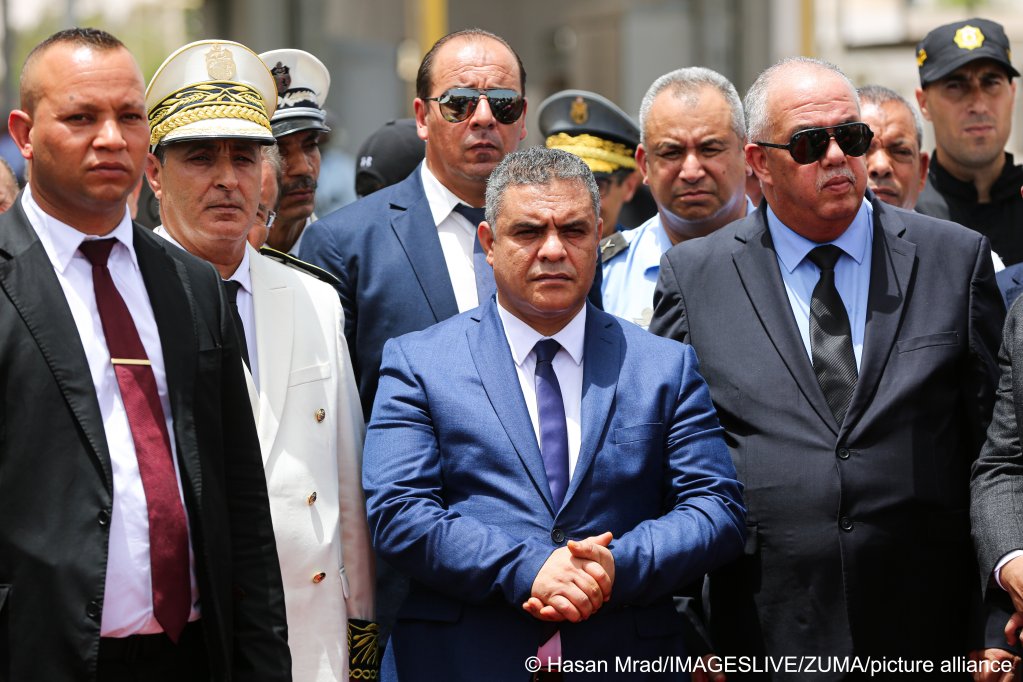
Diplomats and UN officials write to Libyan authorities
The announcement comes, reported the news agency, after 17 ambassadors, mostly from European countries, and a UN official wrote a letter to the ISA, accusing it of an "ongoing crackdown" against non-governmental groups and humanitarian aid workers present in the country.
In the letter, seen by AFP, and dated March 27, the diplomatic officials noted that the ISA had summoned "at least 18 staff members from six international NGOs for questioning," and even reportedly seized some of their passports.
The ISA agents then went on to reportedly ask the officials to "resign from their positions," and pledge in writing to never work for an international NGO again, continued the letter, reported AFP.
As a matter of precaution, the officials warned the Libyan authorities that many other organizations working in the country would also be suspending their activities there.
The Libyan ISA reports to the Interior Ministry in Libya’s capital, Tripoli, which is the seat of the UN-recognized government. However, in the eastern part of the country, General Khalifa Haftar rules over a de facto government or military dictatorship.
Read AlsoEU border crossings down 25 percent, but Central Mediterranean route sees increase
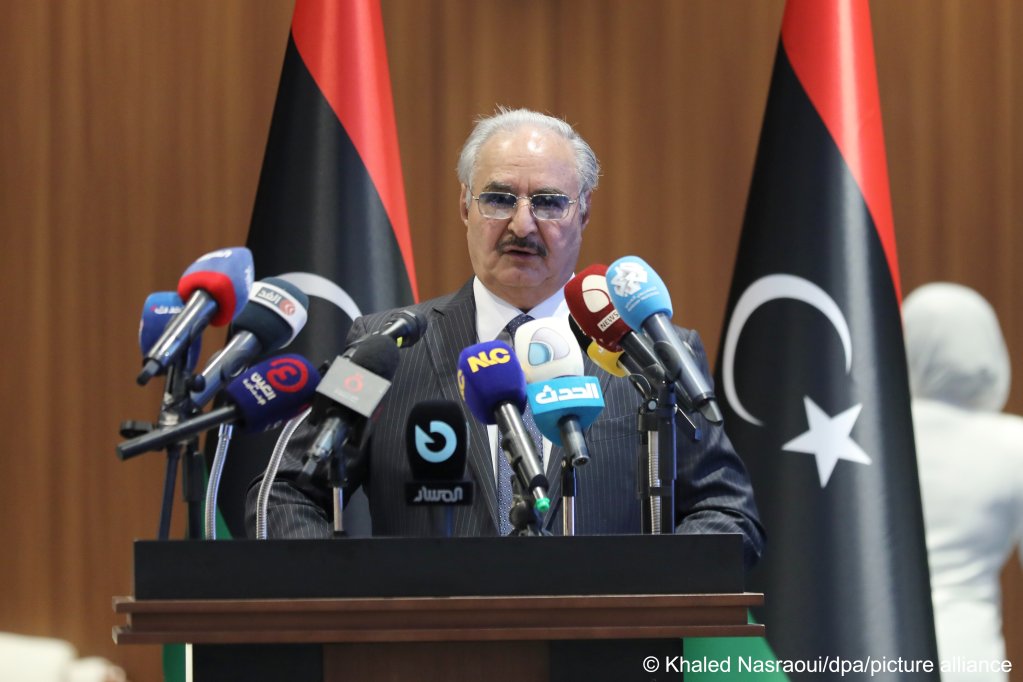
Detrimental effect
According to UN figures, there are more than 700,000 migrants in Libya at the moment. Libyan officials claim that the figure is even higher.
Suspending the activities of the NGOs could have a detrimental effect on the provision of health and humanitarian services in the country overall. The diplomats in their letter warned the Libyan authorities that measures taken against NGOs would affect "the provision of humanitarian primary health assistance."
The letter urged the Libyan authorities to allow the NGOs to "reopen their offices and safely restart humanitarian operations as soon as possible," reported AFP.
Read AlsoMigrants rescued from gas platform off Tunisia
CESVI in Libya
The Italian NGO CESVI has been working in Libya since 2011. It began by "providing humanitarian aid facing up to the emergency and to the needs arising from the conflict," within the country following the fall of General Gaddafi. The NGO states on its website it helped distribute food and non-food items to the more vulnerable, as well as managing "cash-for-work initiatives."
In collaboration with UNHCR, in 2012, CESVI began supporting internally displaced persons (IDPs) as well as refugees, asylum seekers and irregular migrants arriving from Syria and sub-Saharan African countries.
CESVI also helped with training and capacity building for the Libyan authorities and ran health projects in Gharyan, Sabratha, Surman and Homs. This included offering health services in detention centers and the main IDP camps in Tripoli.
CESVI says since then it has "continued to work in both eastern and western Libya along the same lines." CESVI works in partnership with both UNHCR and UNICEF (the UN children’s agency). It provides services to two Community Development Centers in Tripoli and Benghazi, and offers systems of protection, child protection and direct economic assistance, as well as psychological mental health services in Tripoli, Benghazi and Ben Walid.
CESVI staff also work in detention centers, organizing recreational activities for detainees, such as sports, reading and encouraging children to play and take part in educational activities.
Read AlsoEU signs controversial migration agreements in Africa
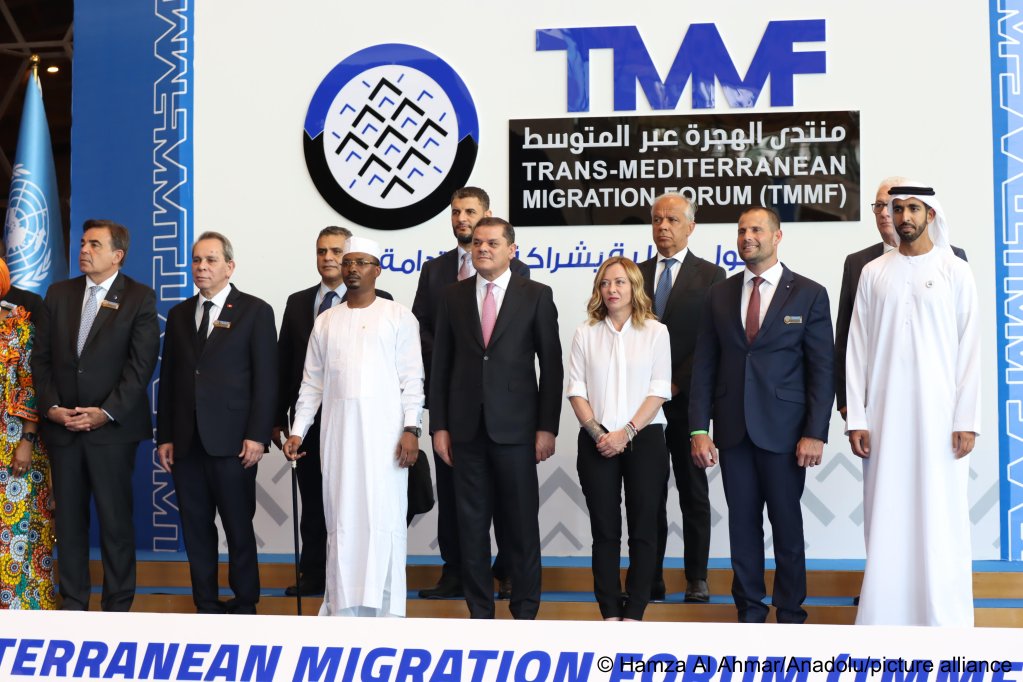
NRC in Libya
The Norwegian Refugee Council says it is "hard at work in Libya -- supporting all those who need us with shelter, cash grants and other vital assistance, including help to obtain vital legal documentation," according to the group's website.
The NRC supports both Libyan nationals and displaced refugees, migrants and asylum seekers in Libya. An estimated 143,012 people are displaced in the country, which has a population of around seven million. Additionally, Libya hosts about 56,674 refugees.
The NRC established its presence in Libya in 2017 and has a main office in Tripoli, although it works in the areas of Tunis, Tunisia, Tripoli, Benghazi, Misrata, Ajdabiya, and Tawergha
The NGO says it works alongside other partners to deliver shelter and settlements, water, sanitation and hygiene, ensure livelihoods and food assistance by providing cash assistance and also encourages people to develop sustainable livelihoods.
In 2023, the NRC reportedly assisted 44,898 people through its programs in Libya.
Read AlsoItalian NGO claims it has 'video proof' of migrant deportations in desert
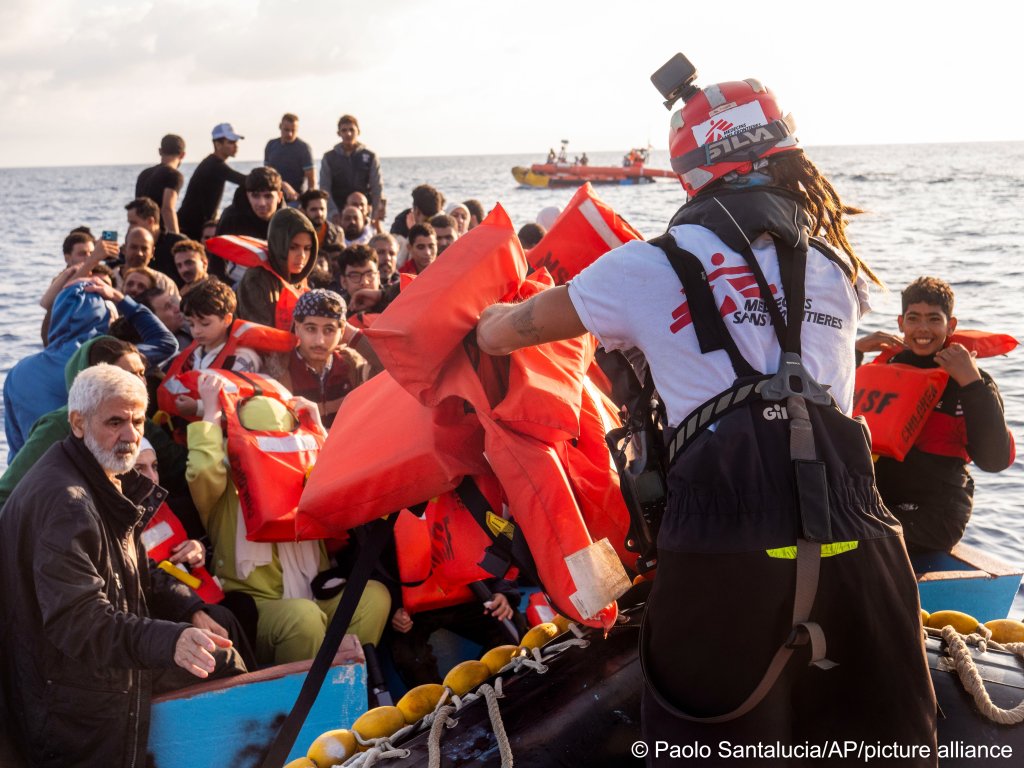
MSF in Libya
The medical humanitarian charity Doctors Without Borders (MSF) assists thousands of people in Libya each year. When asked for comment by InfoMigrants, they told us: "MSF has been working in eastern and western Libya since 2011, providing primary healthcare, tuberculosis diagnosis and care, mental health support and sexual and reproductive health consultations to Libyan and non-Libyan people. MSF has always worked in collaboration with the Libyan health authorities. We have continuously been authorised to work in the country and duly registered by competent authorities. The only purpose of our actions in Libya is to provide medical care to people in need. In 2024, MSF conducted 15,018 medical consultations, 3,024 mental health consultations and 2,035 consultations on tuberculosis."
The medical humanitarian charity continued: "In 2023, MSF provided emergency medical support following the flooding in Derna, supporting two primary health care centers and providing medical consultations to almost 5,000 people. MSF also provided mental health services, with individual and group sessions."
In that year, 2023, according to its website, MSF helped over 50,000 people across the country. MSF teams provide medical support in the cities of Misrata, Tripoli and Zuwara, offering basic healthcare as well as sexual and reproductive health, mental health, diagnosis and treatment of tuberculosis and sexual violence.
'Extreme violence'
In a report published on February 12, 2025, MSF underlined again that tens of thousands of migrants in Libya face "extreme violence" and "exclusion from healthcare" in the country. Often, migrants, asylum seekers and refugees there live in "precarious conditions and are subjected to a range of violence and abuse, both inside and outside the country’s detention centers," wrote MSF.
Many are subject to repeated kidnapping and extortion attempts and trafficking practices. Sexual abuse is rife and access to healthcare is often "severely hampered at a time when they desperately need it."
One young Sudanese boy, who MSF called Ahmed* said that he had "fainted under the blows" and that when he woke up, "they were still beating me. I was disfigured, I had no teeth, and my friend Saud told me that they had hit my head with a brick," explained Ahmed to MSF representatives.
Ahmed is one of the people MSF teams took care of in Zuwara, around 100 kilometers from the Libyan capital, Tripoli. He spent a month in hospital under their care, stated MSF.
Read AlsoTripoli seeks to present itself as a migration hub amid human rights concerns
'Exposed to violence on a daily basis'
Steve Purbrick, MSFs head of programs in Libya, stated in the report, "people living undocumented in Libya have no protection, either in law or from the country’s fragile institutions, which prevents them from accessing healthcare. They are exposed to violence on a daily basis. We see people who have been trafficked, others who have been tortured, raped."
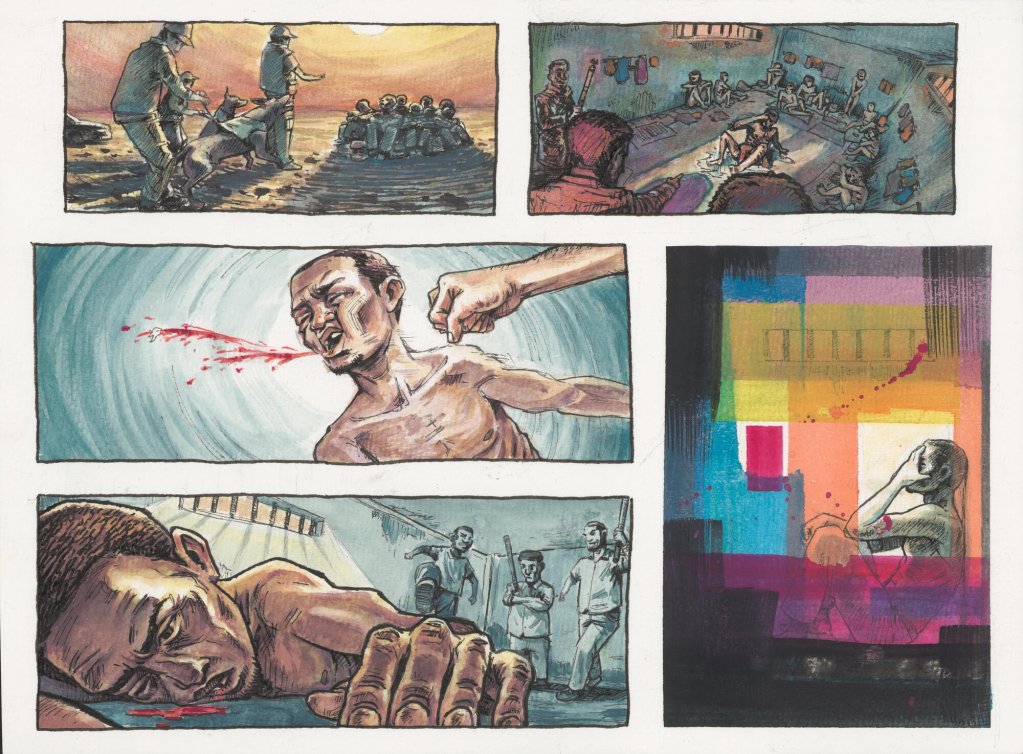
Another MSF doctor working in Libya, Issam Abdullah, deputy medical manager of the team there stated that for many migrants, without protection and access to care "their injuries and traumas are rapidly worsening."
One man from Cameroon, whom MSF called Nelson*, was seeing an MSF psychologist since he lost his wife and two children during the sinking of the boat they were on while trying to reach Europe. Nelson told MSF, "your destiny can change at any moment in Libya, all it takes is one little thing and your life is turned upside down, you can die, you can end up in prison."
If you need to go and see a doctor, explained Nelson, or even just buy some break, "you can take the wrong road and run into police. If it’s your lucky day, they don’t see you; if it’s not your lucky day, they arrest you."
Read AlsoShipwreck survivors on MSF’s ship, 'sold and tortured in Libya'
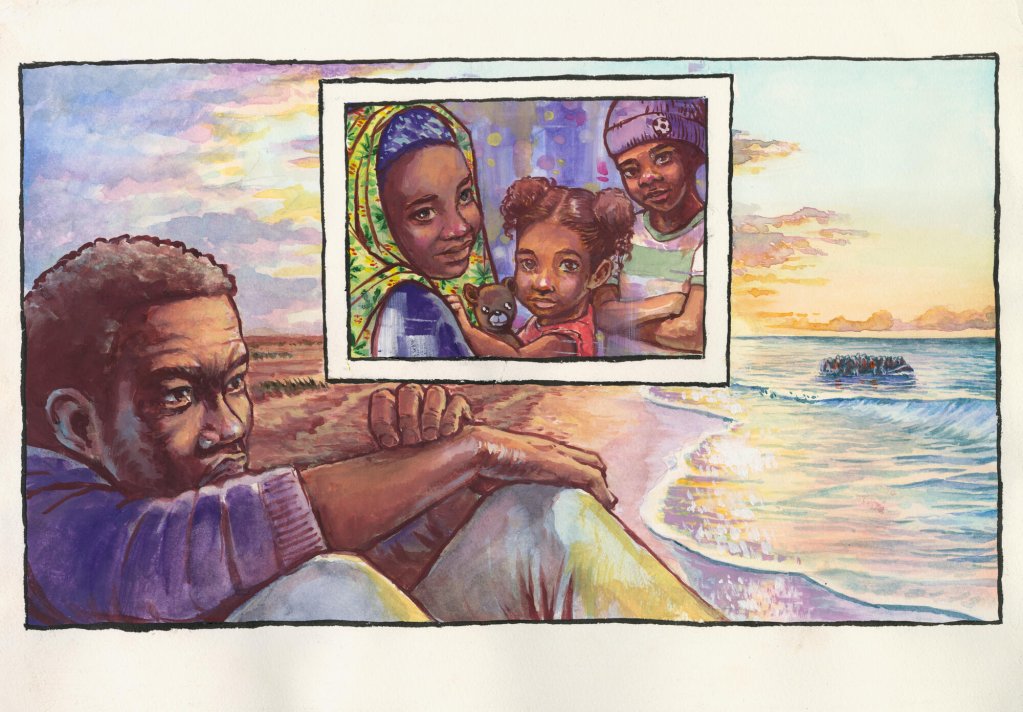
MSF urges more humanitarian corridors
MSF’s head of programs in Libya, Steve Purbrick commented, "people on the move are an integral part of an economic model set up by militias, with the complicity of the European Union and its member states, with the aim of extorting money from them
In order to cross, migrants pay money for their release and continuation of their journey, "but always with the risk of falling victim to criminal networks once again."
For that reason, MSF is "focusing our efforts on opening up safe and legal pathways to evacuate people from Libya, in particular via the humanitarian corridor that exists between Libya and Italy," Purbrick states.
MSF participates in the corridor and helps identify vulnerable people who could be evacuated and taken to Itay. Purbrick underlines the possibilities on this corridor "need to be drastically increased."
Since 2021, MSF has enabled the evacuation of more than 700 people. Around 60 of them had been MSF patients in Libya. 14 of these people were subsequently cared for by MSF teams in Palermo, Sicily.
*Names changed by MSF to protect their identities
*On Thursday, InfoMigrants approached both NRC and MSF for comment about the situation. We received an answer from MSF on Friday, (April 4) and the statement is within the text.
